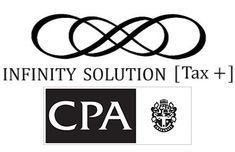
Debunking Audits: A Chartered Accountant's Perspective
Introduction
The world of financing is typically shrouded in a veil of complexity and confusion, particularly when it pertains to audits. Lots of organizations and people alike see audits as an intimidating process fraught with uncertainty. However, comprehending the role of a chartered accountant can shed light on this important aspect of monetary management. This short article aims to demystify audits from a chartered accountant's perspective, using insights into what they require, the advantages they supply, and how they contribute to a business's overall health.
As we traverse this journey through the realm of auditing, we will check out different aspects that highlight the know-how and authority of chartered accountants, particularly those operating within Australia and acknowledged internationally as certified public accountants (CPAs). So let's dive deeper into the world of audits!
Demystifying Audits: A Chartered Accountant's Perspective
What is an Audit?
Auditing is basically an organized examination of an organization's monetary declarations, records, and operations. It serves numerous purposes:
- Verification: Guaranteeing that financial statements are free from product misstatement.
- Compliance: Confirming adherence to regulatory requirements.
- Evaluation: Examining the effectiveness and efficiency of internal controls.
A chartered accountant specializes in performing these reviews with precision and integrity. In Australia, an Australian Chartered Accountant (ACA) possesses substantial training and experience to browse intricate monetary landscapes.
Types of Audits
Internal Audits
Internal audits are carried out by a company's own staff or worked with professionals to examine risk management practices and make sure compliance with policies.
- Purpose: To improve functional efficiency.
- Frequency: They can be performed constantly or periodically.
External Audits
External audits are carried out by independent auditors who evaluate a company's monetary statements for accuracy.
- Purpose: To provide assurance to stakeholders.
- Frequency: Usually conducted annually.
The Audit Process Explained
Planning Phase
Before any audit starts, careful planning is essential. This stage consists of:
Fieldwork Phase
During this stage, auditors carry out testing procedures including:
- Sampling Transactions: Reviewing chosen deals for accuracy.
- Testing Controls: Assessing whether internal controls operate effectively.
Reporting Phase
After completing fieldwork, auditors compile their findings into a report detailing:
- Opinion on Financial Statements: Whether they present a true and reasonable view.
- Recommendations for Improvement: Recommendations based on observed weaknesses.
Role of the Charter Accountant in Audits
Chartered Accountants play a pivotal role throughout the auditing process. Their qualifications enable them to:
- Interpret complex accounting standards.
- Identify prospective risks better than non-specialists.
- Communicate findings clearly to stakeholders.
Importance of Audits for Businesses
Audits serve many vital functions for organizations aiming to keep openness and responsibility:
How Chartered Accountants Aid Organizations Post-Audit
Once auditing is total, chartered accountants provide vital help through different ways:
1. Analysis of Findings
Understanding audit reports can be challenging; chartered accountants break down complicated info for much easier comprehension.

2. Strategic Consultation
They offer tactical guidance based upon audit outcomes, helping companies enhance processes or correct issues highlighted during the review.
3. Training & & Development
Chartered accountants might likewise perform training sessions aimed at enhancing internal controls within organizations.
Common Misconceptions About Audits Debunked
1."Audits are Just for Big Companies "
This misunderstanding ignores that all companies-- regardless of size-- can benefit from routine audits as part of sound monetary management practices.
2."An Audit Method You're in Problem"
While some might fear that being audited recommends wrongdoing, it's important to comprehend that audits target at making sure compliance and enhancing functional integrity instead of penalizing mistakes.
3." All Auditors Are Alike"
There are significant distinctions amongst auditors based upon credentials-- chartered accountants have rigorous training that improves their trustworthiness over others without such credentials.
Navigating Tax Through Audits with CPA Accountants
Tax returns can typically end up being convoluted; nevertheless, having a CPA accountant during audit processes streamlines tax-related issues substantially:
FAQs About Auditing
1. What documents are needed for an audit?
Accountant Box HillTypically required files include:
- Financial statements
- Transaction records
- Bank reconciliations
- Internal control documentation
2. How long does an audit take?
The duration differs based on company size but normally ranges from a number of weeks to months depending on intricacy and preparedness.
3. Can I choose my auditor?
Yes! You deserve to choose your preferred auditor; nevertheless, guarantee they have appropriate qualifications such as being a certified public accountant(CPA).
4. What happens if issues emerge during an audit?
Should discrepancies show up during an audit, auditors will go over these findings with you before providing suggestions or essential adjustments.
5. Do I require an audit every year?
While not compulsory for all businesses every year, regular audits are suggested as they promote continued compliance and efficiency examination over time.
6. Is there a distinction between an accountant and a certified public accountant?
Yes! A CPA has actually fulfilled particular licensing requirements-- including passing tests-- while"accountant"is more generic without necessarily suggesting certification or licensure status.
Conclusion
In conclusion, demystifying audits exposes their vital role in promoting openness within organizations across numerous sectors-- from small startups to large corporations operating worldwide! With professional guidance from chartered accountants-- whether you're browsing Australian guidelines or worldwide standards-- the auditing journey changes into one filled with opportunity instead of apprehension!
By understanding the importance behind each step-- from planning through reporting-- you empower yourself as both business owner(s )& stakeholder(s)alike towards notified decision-making backed by strong data-driven insights provided by top-rated accountants!
So next time you hear about audits don't let fear cloud judgment; rather accept them as valuable tools geared up & exclusively at improving overall business health!
If you have more inquiries about how you can utilize auditing services tailored particularly for your needs reach out today-- we're here prepared & prepared assist!